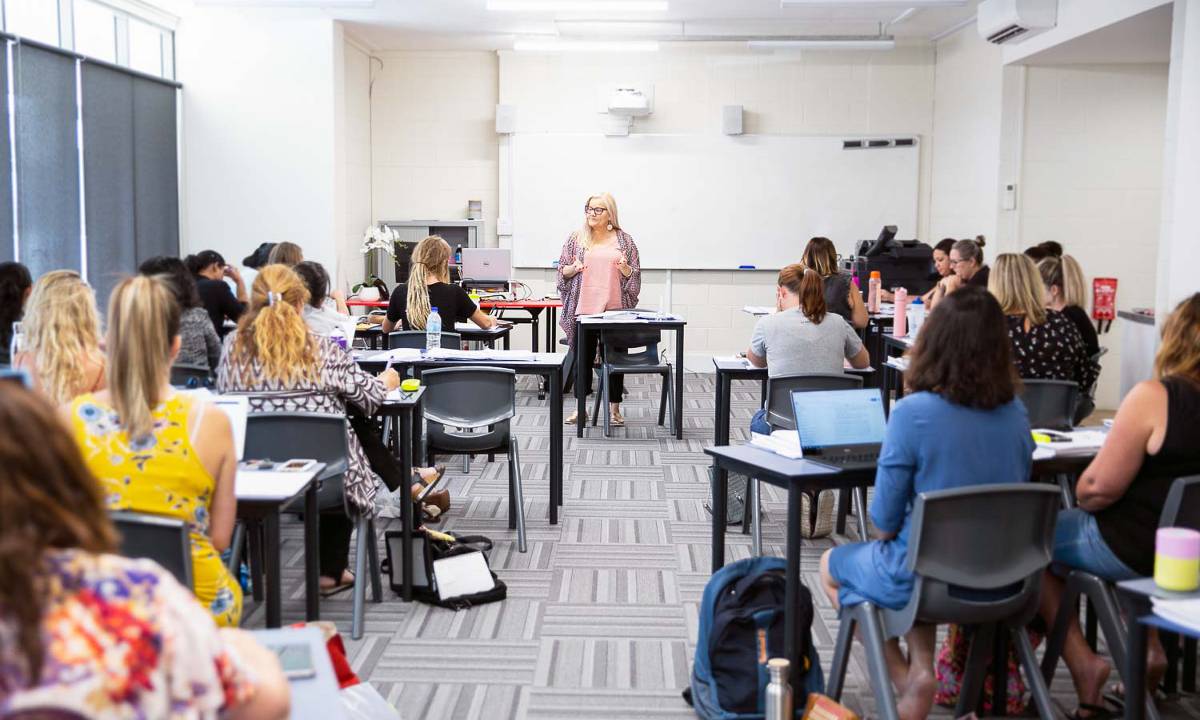
Class-based students attend a weekly workshop and complete self-paced activities in the comfort of their own home.
Below you will read about studying and working as a teacher aide in WA. Studying a nationally recognised teacher aide course in Western Australia has never been easier - Australia's leading provider of teacher aide courses is based right here in WA. With 1129 schools in Western Australia and new schools opening every year, now is the time to get qualified.
Younger students may choose to enrol in the introductory CHC30221 Certificate III in School Based Education Support. Alternatively, the CHC40221 Certificate IV in School Based Education Support is recommended for mature aged students particularly those with experience with children and who want to be qualified for every teacher aide positions in Western Australia.
We mostly however, recommend the Teacher Aide Combo because it combines the best of both courses and saves students considerable time and money. ITAC's Teacher Aide Combo is the only true 'combo' program in Australia - more about that here.
With 1129 schools in Western Australia and new schools opening every year, now is the time to get qualified.
Because ITAC are based in Western Australia, our local staff have decades of experience in WA's schools. We know how schools operate here and what skills they look for before hiring new staff. ITAC’s unique teacher aide courses will help you achieve your educational, career and lifestyle goals.
For specific details about any of our programs, follow one of the links below:
If you're thinking about enrolling in a teacher aide course, read our article on how to choose a training provider by clicking here.
1. What are the main things I need to know about teacher aide courses in WA? 2. Can I study a teacher aide course online from anywhere in WA? 3. How long and how difficult are ITAC's teacher aide courses? 4. Which teacher aide course in WA is right for me? 5. Is there anything else I need to know about ITAC's teacher aide courses in WA? 6. What if I have more questions about teacher aide courses in Western Australia? 7. Why are schools now demanding staff to have completed a research-based course? 8. Do you have any tips for choosing a training provider? 9. What is the difference between ITAC's courses and teacher aide courses at TAFE? 10. How do I become a teacher aide in Western Australia? 11. How do I find a job as a teacher aide in Western Australia? 12. How much do teacher aides earn in WA? 13. What's it like to study a teacher aide course? 14. What are the main points to consider if enrolling in a teacher aide course in WA? Final thoughts

Class-based students attend a weekly workshop and complete self-paced activities in the comfort of their own home.
If, like most people, you're too busy to read this entire article, here are the main takeaways about teacher aide courses in WA:
All of our trainers are ex-teachers or teacher aides with years of experience and are Perth based. If considering another provider, check to see that their trainers are based in Perth and that they are former school teachers.

Only at ITAC will you learn a range of teaching and learning strategies such as explicit instruction as pictured above.
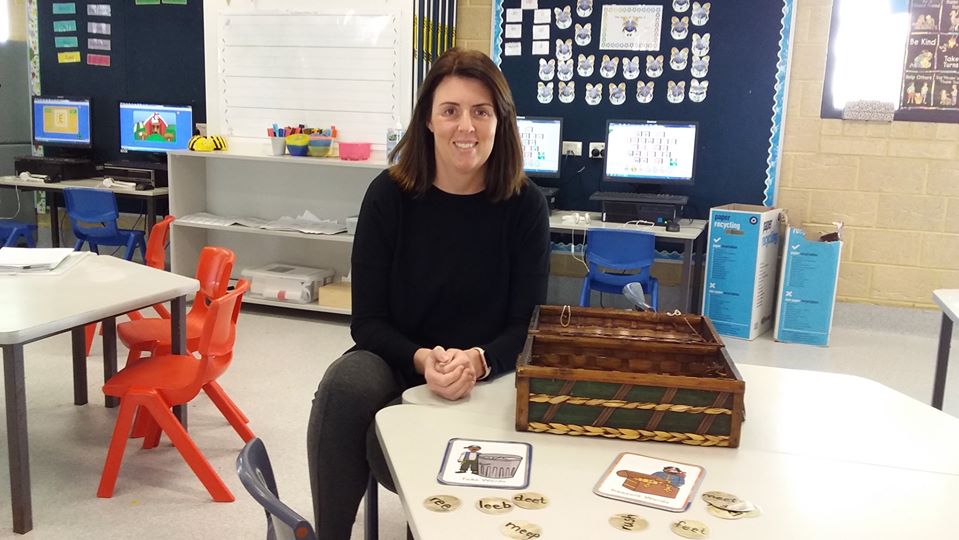
ITAC student on placement after completing her online course and learning industry best practice skills and techniques. Which strategies do you think she is about to implement?
ITAC is the only provider offering research-based content similar to what teachers learn at university.
All of ITAC's teacher aide courses are available online. It's important to bear in mind that online does not mean that you are on your own with no support. You may, for example, attend regular tutorials and live webinars. Trainers also contact students on a regular basis to ensure that they are on track.
Many students who enrol online do so because they want additional flexibility to study at a time that suits them. Staying in regular contact with your trainer is essential and it helps to ensure that you are progressing at a good pace. A word of warning however, not all online courses are the same - some are no more than a series a .pdfs while others include live webinars, interactive e-learning modules and support from expert school teachers. The quality of your online course is directly related to your employability. ITAC is the only provider offering research-based content similar to what teachers learn at university.
The quality of your online course is directly related to your employability.
Our nationally recognised qualifications are planned to take around 6 months to complete. In fact, the average is somewhere between 4-6 months because most students have experience with children or have studied before - this means they are capable of moving through their program at a faster pace. The time it takes to complete your course depends on:
If you're a parent, your experiences can make a huge difference to the speed and ease at which you are able to work through your teacher aide course. This is because a lot of the materials and topics will already be familiar and they will make sense to you much faster compared to a person without the same experiences. It's a case of extrapolating your existing knowledge and applying it to a professional context where there are strict expectations e.g. how basic behavioural strategies fit within modern learning theories.
If you're a parent, your experiences can make a huge difference to the speed and ease at which you can work through you teacher aide course.
As far as nationally recognised courses are concerned the CHC30221 Certificate III in School Based Education Support and the CHC40221 Certificate IV in School Based Education Support are comparatively easy and simple (compared to more technical courses such as engineering, trades, IT, accounting etc.). This doesn't mean that the time it takes to complete the course will be any less however - there is more to the work of teacher aides than many first think.
The table below compares the two nationally recognised teacher aide courses available in Perth WA: CHC30221 Certificate III in School Based Education Support and the CHC40221 Certificate IV in School Based Education Support, as well as our Teacher Aide Combo.
Teacher Aide Courses in Western Australia
Code |
CHC30221 |
CHC40221 |
Both |
| Level | AQF Certificate III | AQF Certificate IV | AQF Certificate IV |
| Full title | CHC30221 - Certificate III in School Based Education Support | CHC40221 - Certificate IV in School Based Education Support | Teacher Aide Combo |
| Units | 15 units of competency | 17 units of competency | 4 main modules |
| Electives | 5 units of competency | 5 units of competency | 4 main modules |
| Nationally recognised | Yes | Yes | Yes |
| Class mode | Yes – by approval | Yes – Cockburn | Yes - Cockburn |
| RPL | Yes | Yes | No |
| Online mode | Yes | Yes | Yes |
| Modules | 3 main modules | 4 main modules | 4 main modules |
| Skill level | Basic - intermediate | Intermediate - advanced | Intermediate - advanced |
| Duration | 600 hours for someone with no experience with children or previous study | 600 hours for someone with no experience with children or previous study | 600 hours for someone with no experience with children or previous study |
| Placement | 100 hours in a local school | 100 hours in a local school (usually with special needs) | 100 hours in a local school (usually with special needs) |
| Placement location | Any registered school | Any registered school (usually with special needs) | Any registered school (usually with special needs) |
| Job outcome | Mainstream teacher aide | Teacher aide, teacher assistant, education assistant, specialist EA, special need’s EA | Both |
| Job location | Mainstream classroom often lower primary | Mainstream, special needs EA | Any position |
| Kindergarten | Yes | Yes | Yes |
| Pre-primary | Yes | Yes | Yes |
| Primary | Yes | Yes | Yes |
| High school | Generally no | Yes | Yes |
| Senior school | Generally no | Yes | Yes |
| Education Support Centre | No | Yes | Yes |
| Special needs (mainstream) | No | Yes | Yes |
| Job prospects | Depends on quality of training. | High, assuming high quality course to learn research-based skills. | Very high, assuming high quality course to learn research-based skills. |
| Job stability | Medium-high (depends largely on quality of training) | High (assuming completed a high-quality course) | High (assuming completed a high-quality course) |
| Job independence | Low, medium with experience | Medium, high with experience particularly if completed a high quality teacher aide course | Medium, high with experience particularly if completed a high quality teacher aide course |
| Key role | Teacher aide, teacher assistant | Special needs EA (education assistant). | All support roles in a school. Specialist roles such as LLN specialist after further training. |
| Teaching strategies | Basic but effective strategies i.e. prompting | Basic and intermediate strategies such as explicit instruction. Some advanced strategies such as metacognitive skills. | Combination of CHC30221 and CHC40221 |
| Behaviour techniques | Able to employ 6-8 basic behaviour management strategies | Basic and intermediate strategies | Some advanced strategies |
| Knowledge | Basic/foundational | Intermediate and some advanced | All of CHC30221 and CHC40221 |
| Graduate outcome | Work effectively in a mainstream classroom under the direct guidance of a teacher. | Work effectively with students with disabilities and disorders in a mainstream classroom or an education support centre. | All roles from both CHC30221 and CHC40221 |
As you can see from the table above, the main difference between the CHC30221 Certificate III in School Based Education Support and the CHC40221 Certificate IV in School Based Education Support is the course content, graduate outcomes and job role.
The CHC30221 Certificate III in School Based Education Support focuses on training students to work in generalist roles - usually in lower grades. On the other hand, the CHC40221 Certificate IV in School Based Education Support is geared towards supporting students with more complex needs such as disabilities, disorders, difficulties and comorbidities.
The introductory
the higher-level special need’s course:
or the extremely popular
Your course has several components. Firstly, there is the theory portion of your course. This part of your course involves a range of learning activities culminating in an assessment. These learning activities include:
There are no essays or lengthy reports and most of the assessments are made up of short answer questions on topics directly relevant to your future work as a teacher aide. We try to keep all aspects of the course as practical and as relevant as possible.
The feedback provided by your trainer will enable you to substantially improve your practice, and this can mean the difference between being offered a position and being passed over.
Another aspect of your course is your work placement. The placement is completed at a local school where you will undertake a range of activities culminating in a workplace demonstration. This is where your trainer attends the class and observes you carrying out a range of common tasks such as facilitating a small group learning activity.
It's important to enrol with a provider who visits you in the workplace. This is because, it may be the last opportunity you'll ever get for an experienced trainer to spend time observing your performance. The feedback provided by your trainer will enable you to substantially improve your practice, and this can mean the difference between being offered a position and being passed over. It's also an important service in cases where there are issues during the placement - even the best students can have issues from time to time.
If you’ve read this far, there is no doubt that you have some questions – and so you should – enrolling in a teacher aide course is a big step. To help you out, we've put together a few articles covering everything you'll ever need to know before enrolling in a teacher aide course in Western Australia.
Teacher aide courses in WA – additional information
Clickable link |
What you’ll learn |
| How to become a teacher aide in Australia | The most efficient and effective method for becoming a teacher aide and landing your ideal job in a WA school. |
| What do teacher aides do? | Description of the roles and responsibilities of teacher aides in Western Australian schools. |
| Teacher Aide Certificates and Qualifications | We outline various ways that you can gain a qualification, such as the CHC30221 Certificate III in School Based Education Support, and improve your professional capabilities. |
| How much do teacher aides get paid? | Your hourly, weekly and annual pay/salary in WA as well as related questions such as holiday pay. |
| Teacher's Aide Course Online: Is it Right for me? | Studying a teacher aide course online: what to expect, how it works, questions to ask, is it right for you? |
| How to choose a training provider | Learning how to compare and select a training provider with our detailed guide. |
| Integrated course structure | Studying a course that is designed with an integrated structure removes the duplication found across units. This means a huge time-saving compared to a unit-by-unit course. |

It's essential that teacher aides study a course that includes best practice instructional strategies such as explicit instruction and simultaneous prompting. Unfortunately, ITAC is one of the only providers in Australia delivering teacher aide courses based on current research.
You may have noticed that we like to use the term ‘research-based’ and ‘best practice’ to describe our courses. But what exactly does that mean? In simple terms, when we develop our courses, our experts comb through the research from Australia and overseas to find what works. We look at what teachers are taught in universities, the skills that governments want their teachers and support workers to have, the latest educational programs, and what the research says about teacher aides and their work. Here are just two examples of where some of our course content comes from:
Practically speaking, this means that we base our teacher aide courses around a whole heap of practical and best practice strategies, skills and techniques that are used by high performing teachers, teacher aides, schools and governments around the world - including Australia. In fact, ITAC students learn many of the same strategies that teachers learn during their university studies. Depending on your course, you will learn some of the following with ITAC:
You will only find these and many other teaching strategies in one of ITAC’s research-based, best practice teacher aide courses. While most providers teach a few strategies, at ITAC you will learn dozens, if not hundreds of practical and effective strategies and techniques making you an expert in your new profession.
In fact, ITAC students learn many of the same strategies that teachers learn during their university studies.
The provider should have local trainers - they will know how local schools operate.
Maybe ITAC isn’t your cup of tea in terms of studying a teacher aide courses in Western Australia. Regardless, we want to make sure that you choose a provider that is high quality, value for money, reputable, gives you the skills that schools look for, and who provides a satisfactory experience overall. Here is how to figure all that out:
ITAC has the only integrated teacher aide course in Australia.
Many people ask about the difference between ITAC and TAFE in Western Australia as far as teacher aide courses are concerned. To give a very general and broad explanation, TAFE has been known as the provider for high school students, younger students, regional and rural areas and for students with additional needs. This is because TAFE receives government funding for specific cohorts (groups) of students who need additional support e.g. high school students, people from disadvantaged minorities. The main way that TAFEs cater to students with additional needs is to run courses that include significant amounts of class time not dissimilar to high school.
On the other hand, the average age of an ITAC student is just over 37 years of age. Our courses are geared towards busy but capable adult learners who have work or other commitments, and who are unable to spend extended periods of time in a classroom (TAFEs are in many ways an extension of high school). In fact, for most adult learners, sitting in class for 3-4 days each week is unnecessary.
If you are a younger student or would like to attend class similar to a high school environment, then TAFE might be the right option for you. However, if you're looking for a more flexible adult-orientated program, a provider like ITAC will likely be better able to meet your needs.

To become a teacher aide in Western Australia you will first need to enrol in a course such as the CHC30221 Certificate IV in School Based Education Support and complete the required assessments. Pictured: ITAC student on placement.
Almost all schools require that you hold a nationally recognised qualification such as the CHC30221 Certificate III in School Based Education Support or the CHC40221 Certificate IV in School Based Education Support.
To become a teacher aide in WA you will first need to complete a reputable and nationally recognised qualification (preferably with ITAC of course). Learn how to select a reputable provider by reading this article. Almost all schools require that you hold a nationally recognised qualification such as the CHC30221 Certificate III in School Based Education Support or the CHC40221 Certificate IV in School Based Education Support. As mentioned earlier, the Teacher Aide Combo is often the best option due to the cost, time, skills, employability etc. It means being qualified for every position in schools.
You may have read some of our other articles where we discuss research showing how untrained teacher aides give students the answers to questions around 68% of the time, while teachers only give students the answers to questions around 11% of the time. What this tells us is that people without proper training are more concerned with task completion than conceptual understanding (something you will learn in your course).
Giving answers to students robs them of the ability to self-repair - a key ingredient in the learning process. This has a big effect on the learning outcomes of children and is therefore a component in ITAC's teacher aide courses. Untrained people would not be aware of this issue and can actually impact student learning negatively as a result. This is just one example of why schools want trained staff who have completed a reputable and high quality teacher aide course.
Before starting your new journey as a teacher aide and beginning your job search, you might want to first think about where you would prefer to work. We advise students to cast a wide net and to put your name down everywhere within a reasonable drive. However for some at least, narrowing down your search is a more manageable approach. Here are the main categories you should consider:

Relief work involves covering for a teacher aide who is absent and is the best way to get your foot in the door.
Finding a job as a teacher aide in WA is relatively easy in terms of casual, part-time or relief work. If you are hoping to work in a particular school, it may be some time before a position becomes available unless you are really lucky. Even then, there may be competition from others who are already working or know to the school.
For this reason we advise our students to work relief at a number of different schools (3-5) – once a school sees that you have learnt best practice skills (hence the importance of choosing your course carefully), they will more than likely offer you a longer-term position when one becomes available (normally each year).
We have found that our students are often surprised at how much they enjoy working in schools that they originally wouldn't consider.
You may need to broaden your horizons and look for work in multiple schools to begin with. We have found that our students are often surprised at how much they enjoy working in schools that they originally didn't consider. Don't discount education support centres (ESC), high schools, and schools that are further away than you would have liked. Many students discount high schools because they are intimidated by teenagers. This belief is unfounded and high schools are far from the environment that many imagine.
Other factors that may influence your success at finding work include:
Obtaining a nationally recognised qualification such as the CHC30221 Certificate III in School Based Education Support or the CHC40221 Certificate IV in School Based Education Support is essential. Gone are the days when someone with no training can become a teacher aide in a school – the so called ‘mums' brigade'. Schools have long realised that trained teacher aides are much more effective than untrained TAs even if they have experience raising children of their own. During your nationally recognised qualification you will learn a range of strategies and techniques that are essential for working effectively as a teacher aide in a modern school.
During your nationally recognised qualification you will learn a range of strategies and techniques that are essential for working effectively as a teacher aide in a modern school.
Positions are sometimes advertised online or on government websites e.g. jobs' boards. Often hundreds of people apply for these positions depending on the role and location. For this reason, we generally don't recommend hinging your job-hunting success on applying for advertised positions alone.
You may also find that some positions are advertised in the local newspaper such as the West Australian. This is mainly the case for part-time and temporary positions in the private sector such as for Catholic schools.
We recommend the following steps in order to find a teacher aide job in Western Australia:
This is the tried and tested method that we teach our students and it's based on advice from schools, teachers, hiring managers.
You can expect to earn approximately $30 per hour or more as a teacher aide in Western Australia.
You can expect to earn approximately $30 per hour or more as a teacher aide in Western Australia. Teacher aides can earn more or less than $30 depending on a range of factors such as:
In Western Australia, there are three main pay levels for teacher aides in the public sector. These 3 levels are explained below (in very general terms):
Obviously, level 2 pays higher than level 1 and so forth. Bear in mind that most teacher aides work 32.5 hours per week. This is because they are not expected to work outside of contact hours for the most part (other than a few minutes either side of the day). Teacher aides in WA are not required to do any planning, resource development or other such activities, and consequentially are only expected to work 6.5 hour days being 8.30 - 3.30 with an unpaid 30 minute lunch break.
You can learn more by going to the Education Assistants' Award Western Australia which outlines things such as:
Note: This only applies to the public education system in WA, however the private system is very similar. If you are working in a religious-based or other private school, you will need to consult with your employer for accurate information about your pay and entitlements.

Above: Build your pedagogical skills, confidence, career and dream lifestyle by completing a nationally recognised teacher aide course with the leader in teacher aide training in Australia. ITAC students learn best practice, research-based skills and strategies such as those demonstrated above – which strategies do you think this teacher aide is implementing? Scaffolding, modelling, feedback, questioning, rapport building, linking to existing knowledge, elaboration, guided or shared learning, think alouds, advanced organisers, phonics, number sense, team teaching, games and quizzes, formative assessment, reflective practice, learning styles or maybe differentiated instruction? She might be using all of these strategies!

Above: Study a best practice, research-based teacher aide course in WA and learn a range of valuable and essential teaching skills, techniques, and strategies that will make you an invaluable member of your school community. Only at ITAC will you study strategies and techniques such as reading and writing support strategies, formative assessment, metacognitive skills, individual education plans, explicit instruction, re-reading, repeated reading, intervention and remedial instruction, questioning techniques, reflective practice, setting goals, guided learning, shared learning, scaffolding, modelling and many others.

Above: As you can see in this image, teacher aides work closely with students for most of the day. They predominantly work with students one-on-one, in pairs, or in small groups of 3-6. They do not teach the whole class as that is the job of the teacher. Teacher aides in Australian schools are expected to implement a range of teaching and learning strategies such as scaffolding, modelling, worked examples, explicit instruction, whole-part-whole learning, setting goals and many others. These basic strategies are the bread and butter of all teacher aides. You will only learn these key strategies, and many others, with the leader in teacher aide training in Western Australia: ITAC.

Above: Studying with a reputable provider in order to learn best practice skills and strategies means you will have the ability to take on higher-level responsibilities e.g. running a program with a group of students (as pictured). Only at ITAC will you learn best practice strategies based on international research such as one-on-one instruction, cognitive load theory, motivational strategies, scaffolding, modelling, shared learning, guided learning, and many others.
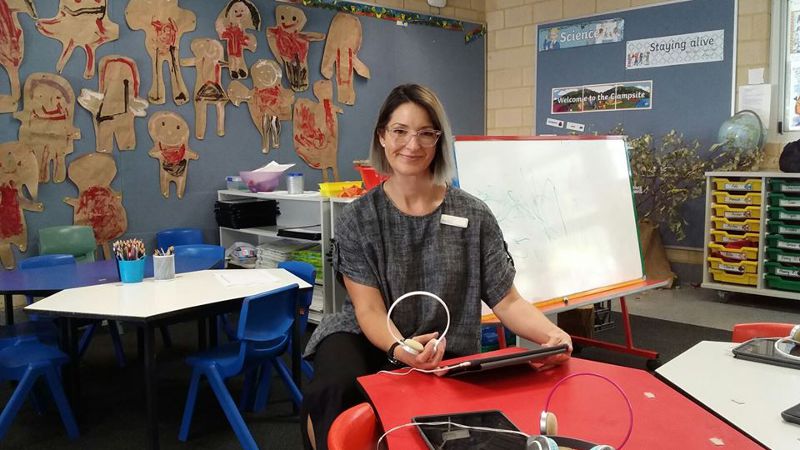
Above: Many classrooms take advantage of technology and use it throughout the day in almost all lessons. This is particularly the case in special needs classes. By implementing research-based, best practice teaching and learning strategies, students are more likely to be offered a position in the school where they undertake placement. You too can get your career up and running and begin the life-long challenge of educating the next generation of leaders by enrolling in Australia’s best teacher aide course: only at ITAC.
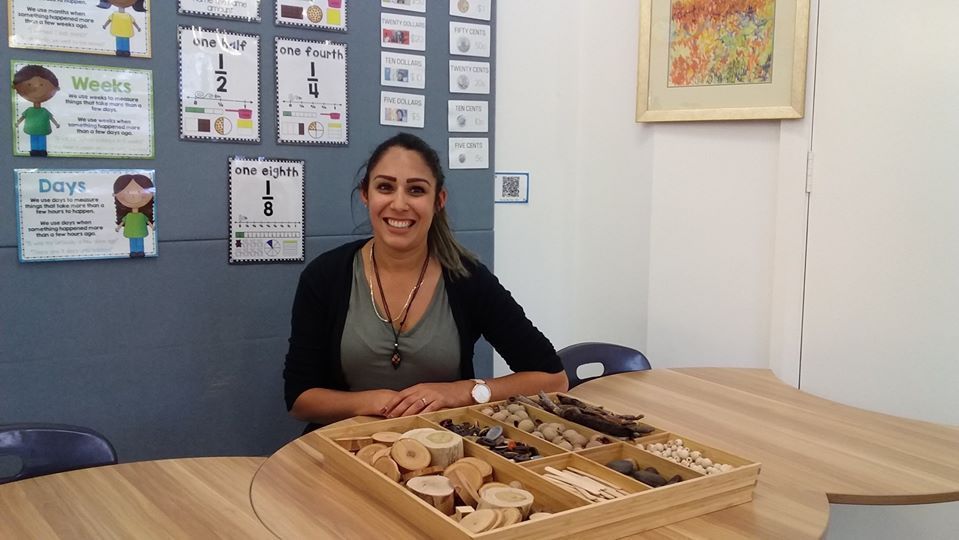
Above: After demonstrating research-based, best practice teaching and learning strategies, this student passed her final assessment. Teacher aides spend most of their working day supporting student development such as with props, equipment and hands on activities as pictured here. Could this be you in a few months?
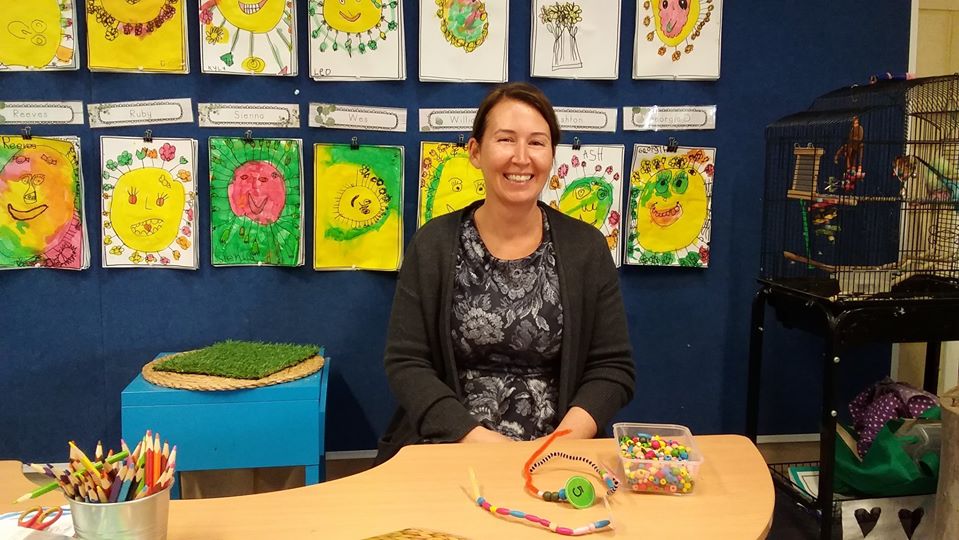
Above: Where do you think your skills would be best utilised? Pictured above is an ITAC graduate helping students to develop their reading and writing skills via a creative art's activity. You too could be part of this exciting, stable and rewarding sector by enrolling in a research-based, best practice teacher aide course with Australia’s leading provider: ITAC.
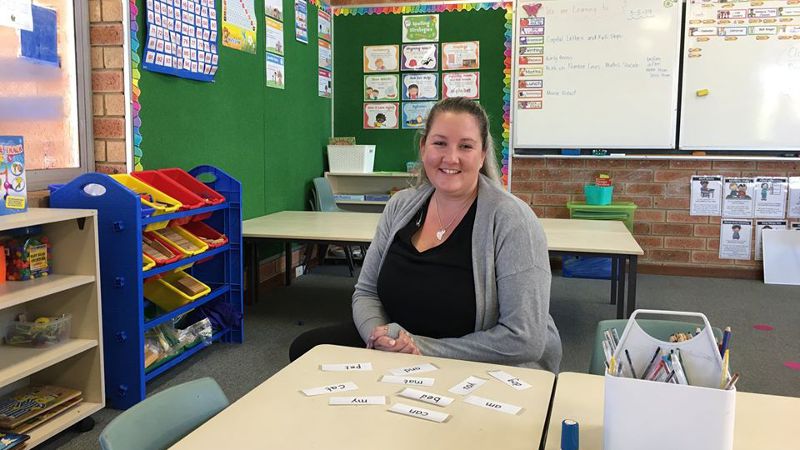
Above: Supporting the development of reading and writing skills begins in early childhood with phonics and whole-word learning. Pictured above, an ITAC student from the CHC40221 Certificate IV in School Based Education Support showcases some of the resources and activities they have been using to develop students’ phonemic awareness (knowledge of the sounds of English). By enrolling in a quality teacher aide course in WA, and by learning and practising best practice teaching and learning strategies and skills, this student was offered work at the school where she completed her work placement. Could this be you in a few months from now?
ITAC offers the only true 'combo' in Australia - that is, we 'mash' all units from both courses together (as opposed to studying each unit one at a time which takes a huge amount of additional time - many months in fact).
This article has covered most of the typical questions that we get in regard to teacher aide courses in WA including:
Working as a teacher aide and supporting students and teachers is one of the most rewarding yet challenging careers anyone can envisage. Before jumping in however, it's important to consider whether this career path is right for you. It's also important to take the time to make the best decision in terms of selecting a mode of study and deciding on a provider. This article has hopefully answered these and many other important questions about teacher aide courses in WA.
With more than 6000 happy teacher aide graduates, an 80% completion rate, payment plans and no additional or hidden fees, ITAC has long been the go-to provider for teacher aide courses in Perth, WA and surrounding areas. Speak to one of our friendly student advisers today about your career aspirations and begin your new journey as a teacher aide with the leader in teacher aide training: the Institute of Teacher Aide Courses.
Happy training!